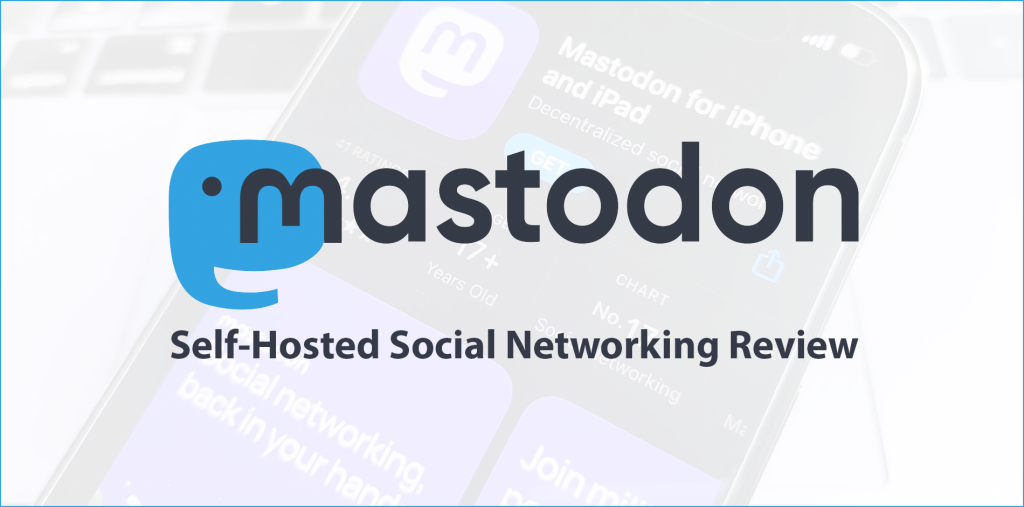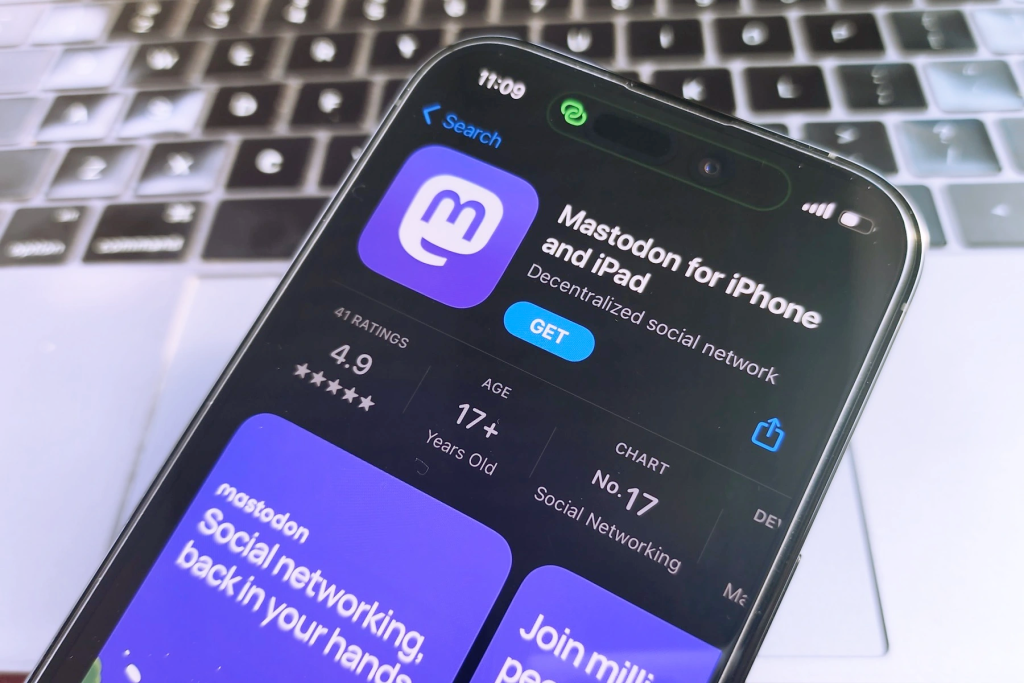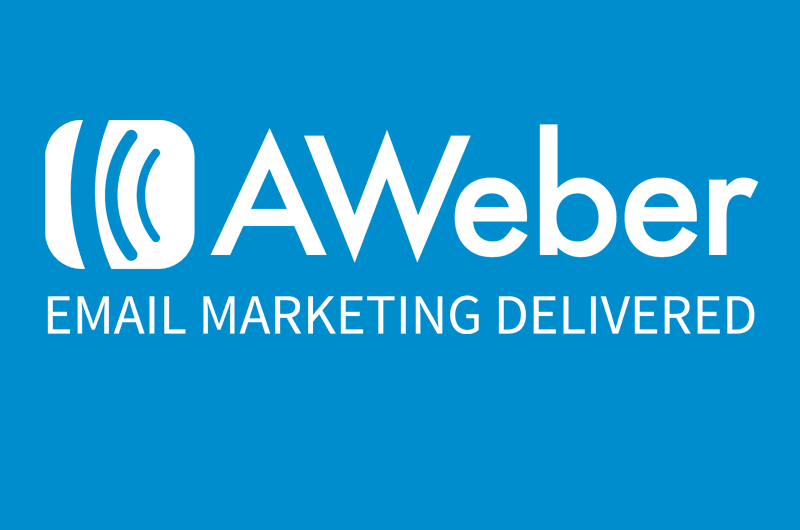Mastodon Review:
A Decentralised Social Media Platform - Pros, Cons, and Everything In-Between
Hi Bitesizers! So, have you heard of Mastodon, the decentralised social media platform? It's gaining popularity as an alternative to mainstream social media sites like Twitter and Facebook. Today I thought we'd dive into both the pros, cons, and everything in-between.
First off, here’s a bit of history - Mastodon was created by German programmer and open-source enthusiast Eugen Rochko in 2016. Rochko was frustrated with the centralised and proprietary nature of existing social media platforms, and sought to create a new kind of platform that would be more open, transparent, and community-driven. Inspired by the Fediverse and by open-source platforms like GNU Social, Rochko built Mastodon as a decentralised and open-source alternative to existing social media platforms. The platform was designed to give users greater privacy, control, and agency, and to foster more meaningful and respectful interactions online. Mastodon has since grown into a thriving community of users, developers, and instances, and continues to evolve and improve.
You can find more in depth here on wikipedpia
First of all, let's talk about the pros. One big perk is that Mastodon gives you more control over your data and privacy. Plus, since Mastodon is open-source, the code is available for anyone to use and modify, making it a more transparent and democratic platform. And you won't have to deal with any annoying ads - Mastodon is completely ad-free. A big advantage is that you can write longer toots (posts) - up to 500 characters! Mastodon also has hashtags, which makes it easier to discover content related to specific topics. And, with Mastodon's boost feature, you can share toots from other users and promote interaction. It's made up of different instances, each with its own community of users, allowing you to join communities that align with your interests and values.
However, like any platform, Mastodon also has some downsides. As a newbie in the social space, it has a smaller user base compared to other popular social media platforms, so you may have a harder time finding people to connect with. The interface and features can also take some getting used to. Additionally, Mastodon can be fragmented, with different instances running the platform, making it difficult to find people you know and interact with them. Discovering new users, content, and communities can also be a challenge due to Mastodon's decentralised nature. Running a Mastodon instance requires some technical skill, and there is no central support system to help with technical issues. Different Mastodon instances may also have different community standards, leading to an inconsistent user experience. It's also less widely recognised compared to other popular social media platforms, which may limit its visibility and growth potential.
All in all, Mastodon offers a unique and innovative social media experience, with pros and cons to consider. Whether it's the right platform for you will depend on your needs and preferences. Just weigh the advantages and disadvantages before making your decision.
The Mastodon App
The Mastodon phone app is pretty straightforward and easy to use. The interface is clean and simple, and you can do all the important things you'd want to do on a social media platform, like post toots, interact with other users, and join different instances.
Of course, as with any new app, there might be a bit of a learning curve at first. But, once you get the hang of it, you'll find that the Mastodon app is very intuitive. And, if you have any questions or run into any issues, there's a supportive community of users who can help you out.
So, if you're looking for a social media app that's user-friendly and packed with features, then the Mastodon app is definitely worth checking out! Just give it a shot and see for yourself!
10 Pros for Mastodon
1. Decentralisation: Mastodon is decentralised, meaning it is run by a network of individual servers, giving users more control over their data and greater privacy.
2. Privacy Settings: Mastodon allows users to choose who can see their toots, giving them greater control over their online presence.
3. Open-Source: Mastodon's code is freely available for anyone to use, modify, and distribute, making it a transparent and democratic platform.
4. Freedom of Speech: Mastodon instances are run by different organisations and communities, meaning that there is a greater diversity of opinions and perspectives represented.
5. No Ads: Mastodon is ad-free, providing a more enjoyable user experience without the distraction of advertisements.
6. Larger Character Limit: Toots on Mastodon can be up to 500 characters, allowing for more comprehensive and nuanced communication compared to other platforms.
7. Hashtags: Mastodon allows users to group toots together using hashtags, making it easier to discover content related to specific topics.
8. Boosts: Mastodon's boost feature allows users to share toots from other users, promoting greater interaction and collaboration between users.
9. Communities: Mastodon is made up of different instances, each with its own community of users. This allows users to join communities that align with their interests and values.
10. No Algorithm: Mastodon does not use an algorithm to curate its users' timelines, ensuring that users see all the toots from the people they follow, in chronological order.
10 Cons for Mastordon
1. Smaller User Base: Mastodon has a smaller user base compared to other popular social media platforms, which may limit the number of people you can interact with.
2. Steep Learning Curve: Mastodon has a different interface and feature set compared to other social media platforms, which may take time to get used to.
3. Fragmentation: With different instances running Mastodon, it can be difficult to find people you know and interact with them, leading to fragmentation across the network.
4. Limited Discoverability: Due to the decentralised nature of Mastodon, it can be challenging to discover new users, content, and communities.
5. Technical Difficulty: Running a Mastodon instance requires a certain level of technical skill and expertise, which may not be accessible to all users.
6. Reduced Interoperability: Interactions between different Mastodon instances can be limited, reducing the level of interoperability between different communities.
7. No Revenue Generation: As Mastodon is open-source and ad-free, there is no revenue generation model to support its continued development and growth.
8. No Centralised Support: With Mastodon being decentralised, there is no central support system in place to help users with technical issues.
9. Varying Community Standards: Different Mastodon instances may have different community standards, leading to a potentially inconsistent user experience.
10. Less Widely Recognised: Mastodon is less widely recognised compared to other popular social media platforms, which may limit its visibility and growth potential.
Alright, to wrap things up - Mastodon is definitely a cool and different type of social media platform. It's not like your typical Twitter or Facebook, and that's a good thing! With Mastodon, you get more privacy and control, and the communities are driven by the users themselves. But, of course, nothing is perfect. Mastodon has a smaller user base, so you may not have as many people to interact with. And, it may take some time to get used to the different interface and features. Also, finding new users, content, and communities can be a challenge.
So, all in all, whether Mastodon is right for you will depend on what you're looking for in a social media platform. Just remember to consider both the pros and cons before making your decision. And hey, it never hurts to try something new, right?
See you next time.
Aweber Features >>>
Unleash the full potential of your email marketing and achieve your business goals with Aweber - Take a look at Aweber features and experience the ease, automation, and success that millions of users trust!
Taking the smart approach to digital marketing success
Copyright © Bitesize Marketing · All Rights Reserved
Please note that some of the links on this website are affiliate links, meaning that, at no additional cost to you, I may earn a commission if you decide to make a purchase through one of these links. While I strive to recommend products and services that I believe are of high quality and beneficial for our audience, I encourage you to conduct your own due diligence before making any purchase. I appreciate your support and trust, and I am committed to maintaining transparency and integrity in all my recommendations. Thank you for your understanding and support.





